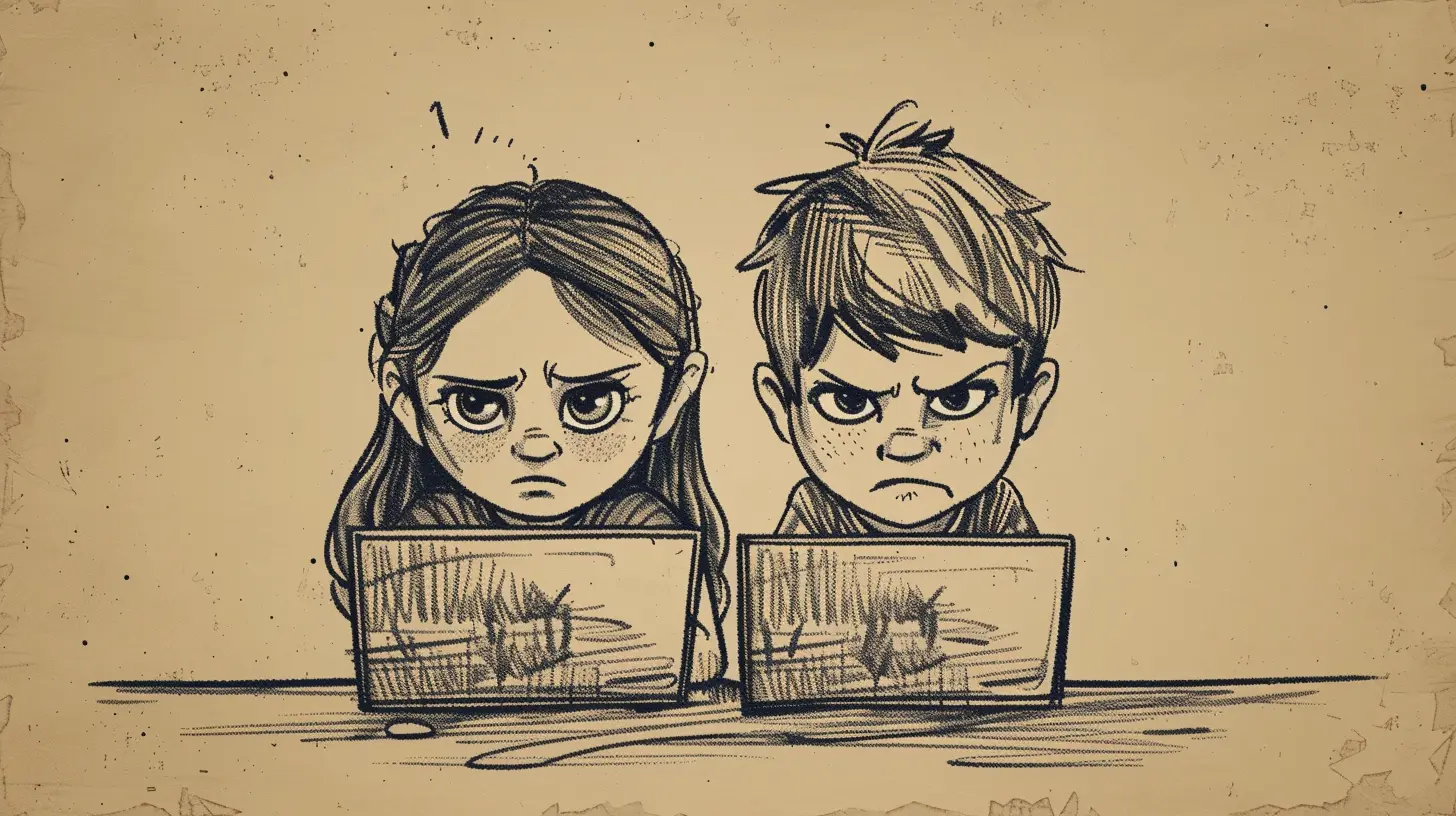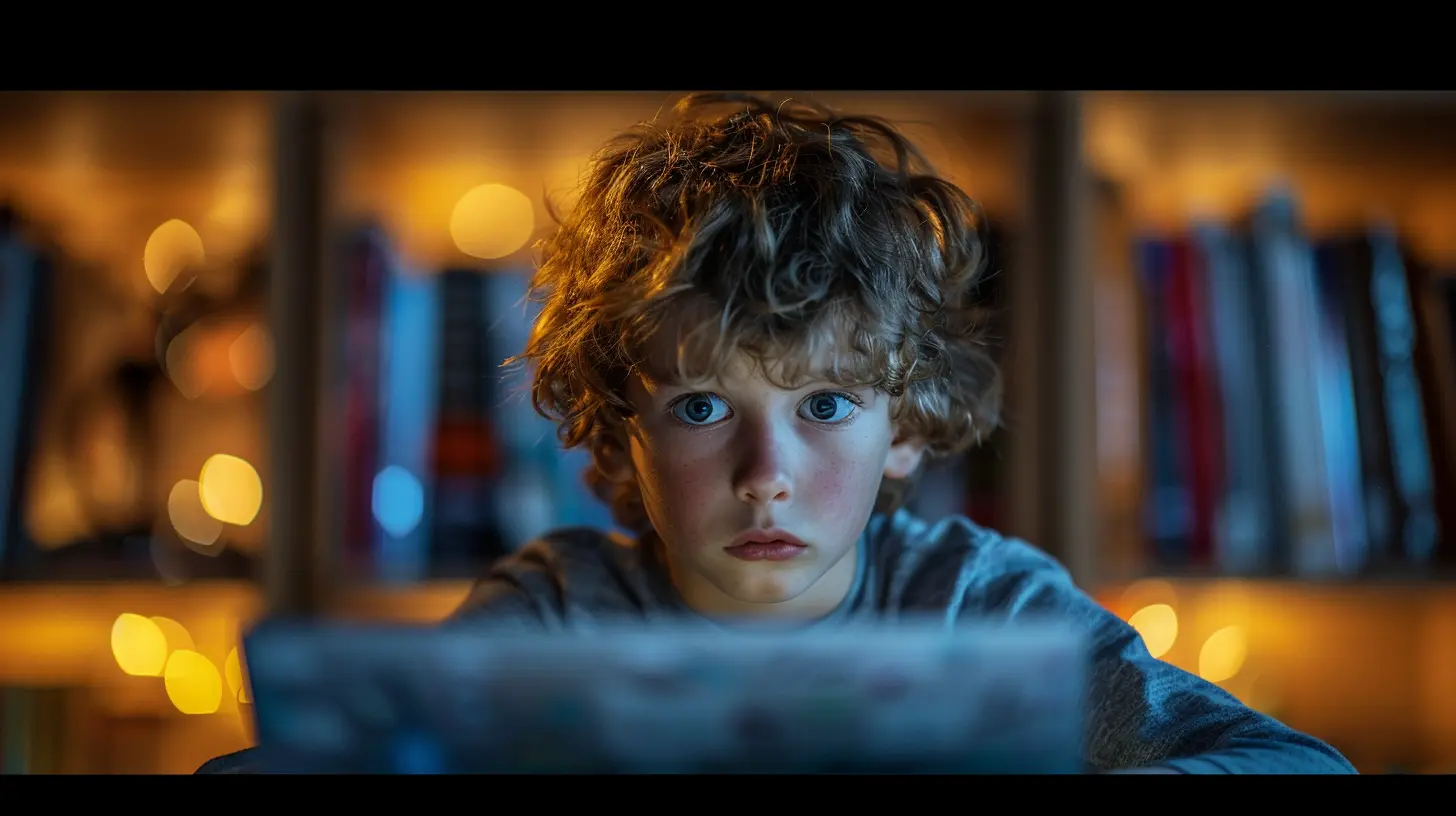Understanding Cyberbullying: What Parents Need to Know
25 May 2025
Let’s face it—parenting in the digital age feels like trying to learn the rules of a game while everyone else is already playing, and somehow, you’ve been tagged as “it.” One minute, your kid is scrolling through harmless cat memes; the next, they’re upset because someone left a mean comment on their photo. Yep, we’re talking about cyberbullying—the not-so-fantastic offspring of the internet.
If you’ve got a mini-you who’s glued to their devices, you must understand cyberbullying inside and out. But don’t worry, this isn’t going to be one of those dry lectures that make you fall asleep mid-paragraph. Grab a cup of coffee (or tea, we don’t judge), and let’s break it down together. 
What Exactly is Cyberbullying?
Alright, first things first—what are we even talking about here? Cyberbullying is bullying, but instead of happening in the playground, it’s happening online. It’s the same old villain with a modern twist. It could be mean comments on social media, cruel texts, sharing personal photos without permission, or even something as sneaky as spreading rumors through private chats.Think of it as the digital version of “Mean Girls,” except it happens 24/7, and instead of Regina George running the show, it’s people hiding behind screens. And the worst part? It follows kids wherever they go—there’s no escaping it, even in the comfort of their own rooms. 
The Sneaky Signs of Cyberbullying
Here’s the tricky part: spotting cyberbullying can feel like looking for a needle in a haystack. Kids don’t always come out and say, “Hey, I’m being cyberbullied!” (Honestly, when was the last time your kid openly told you about their online life?) But, there are clues if you know where to look.1. Mood Swings Galore
Is your usually chill child suddenly acting out? Maybe they’re snapping at you over the smallest things or seem oddly down in the dumps. Cyberbullying can mess with their emotions big time.2. Sudden Avoidance of Screens
If your kid is glued to their phone 24/7 and then suddenly treats it like it’s cursed, it might raise an eyebrow. It’s kind of like avoiding broccoli—there’s usually a reason why.3. Social Withdrawal
Does your little social butterfly suddenly want to cocoon at home? A change in their social behavior could hint they’re struggling with something.4. Mysterious Deletion Sprees
Does your kid keep deleting social media posts or entire accounts? It’s possible they’re trying to escape something happening online.
Why Cyberbullying Hits So Hard
You might be thinking, “It’s just some mean words on a screen. How bad could it really be?” But here’s the thing: words have power, especially in the online world.Imagine someone writes something cruel about you and it’s right there in black and white for the whole world to see. Now, multiply that by a million because the internet has no delete button (really, screenshots are forever). For kids, this can feel like a hurricane-sized attack on their self-esteem.
Plus, when bullying happens online, it’s not limited to the schoolyard or a specific group of kids. Strangers, classmates, even that one random cousin—they can all chime in. It’s like adding fuel to an already blazing fire. 
How to Talk to Your Kids About Cyberbullying
Talking to kids about cyberbullying is like trying to get them to willingly eat their veggies—you need to approach it strategically (and maybe with a little humor).1. Start With Questions
Instead of jumping in with “Have you been bullied?” ease into it. Try asking:- “What’s the craziest thing you’ve seen online?”
- “Ever run into someone mean on Instagram/TikTok?”
- “How do your friends handle drama online?”
These open-ended questions get them talking without sounding like an interrogation.
2. Share Your Own Stories
Okay, so maybe we didn’t deal with cyberbullying back in the day (thank goodness dial-up couldn’t handle TikTok), but surely we’ve all had someone be mean to us. Share an age-appropriate story to show them it’s okay to talk about it.3. Be Their Safe Space
Make it crystal clear that they can come to you, judgment-free, anytime they feel uncomfortable. A simple “You can always tell me anything, and I’ll help, not freak out” can go a long way.What Can Parents Do to Protect Their Kids?
Look, we can’t all be tech wizards who know exactly where our kids are online 24/7. But there are steps you can take to make the digital world a little safer for them.1. Lay Down Ground Rules
Create a family tech agreement. Yep, it sounds boring, but hear me out. Spell out what’s okay and what’s not okay online. Maybe include screen time limits, rules about not sharing personal info, and doses of “don’t feed the trolls.”2. Stay in the Loop
Know what platforms your kid loves (and maybe even join a few yourself). You don’t have to comment on all their TikToks like a cringey parent, but at least understanding the space they’re in can make a huge difference.3. Use Parental Controls, But Don’t Micromanage
There’s a fine line between being protective and being a helicopter parent. Parental controls can help you block harmful content or restrict certain apps—but don’t use them to spy. Nobody likes being watched like a hawk, not even kids.4. Teach Them to Respond, Not React
If they ever face cyberbullying, teach them to take the high road (even if it’s tempting to clap back). Encourage them to block, report, and save evidence instead of engaging.When to Step In
Sometimes, things can escalate beyond a “handle it yourself” level. If your child is being harassed, threatened, or emotionally distressed, step in like the superhero parent you are.- Report: Many social media platforms have options to report abusive content. Use them!
- Involve the School: If the bully is a classmate, the school may have policies in place to address it.
- Seek Help: Don’t shy away from seeking professional help if your child’s mental health is affected. Counseling can be a game-changer.
Encouraging Kids to Be Kind Online
Look, we can’t magically make the internet a bully-free zone (if only, right?), but we can teach our kids to be part of the solution. Remind them that being kind online is just as important as being kind in real life. Encourage them to:- Compliment instead of criticize
- Stand up for others who might be victims of bullying
- Think before they post (Would Grandma approve? If not, rethink it.)
Wrapping It Up
Parenting in the digital age doesn’t come with an instruction manual, but when it comes to cyberbullying, a little knowledge and a lot of open communication go a long way. Keep the conversation going, stay alert for signs, and be ready to step in when needed. After all, your job isn’t to micromanage your child’s online life—it’s to be their rock when they need you most.Now, go forth and tackle this digital parenting thing like the pro you are. You’ve got this, even if the Wi-Fi doesn’t.
all images in this post were generated using AI tools
Category:
Online SafetyAuthor:

Austin Wilcox
Discussion
rate this article
3 comments
Vex Klein
Absolutely loved this article! It’s so important for us as parents to stay informed about cyberbullying. Knowledge is our best tool to protect and empower our kids in the digital world! 💖📱
June 12, 2025 at 4:51 AM

Austin Wilcox
Thank you! I'm glad you found it helpful. Staying informed is key to supporting our kids. 💪🏼
Micah McWilliams
This article effectively highlights the complexities of cyberbullying, emphasizing the importance of open communication between parents and children. Understanding the digital landscape and recognizing signs of distress are crucial for proactive intervention. Empowering kids with coping strategies can foster resilience and promote a safer online environment.
May 30, 2025 at 2:19 AM

Austin Wilcox
Thank you for your insightful comment! I appreciate your emphasis on the role of communication and resilience in addressing cyberbullying.
Yolanda Reyes
Cyberbullying: the only sport where kids dodge actual punches but still end up with emotional bruises! Parents, let’s trade our 'back-in-my-day' stories for some digital detective skills. Grab your magnifying glasses—finding the keyboard warriors is the new parenting adventure!
May 27, 2025 at 3:46 AM

Austin Wilcox
Absolutely! It's crucial for parents to adapt to the digital landscape and actively engage in their kids' online lives to combat cyberbullying effectively.



